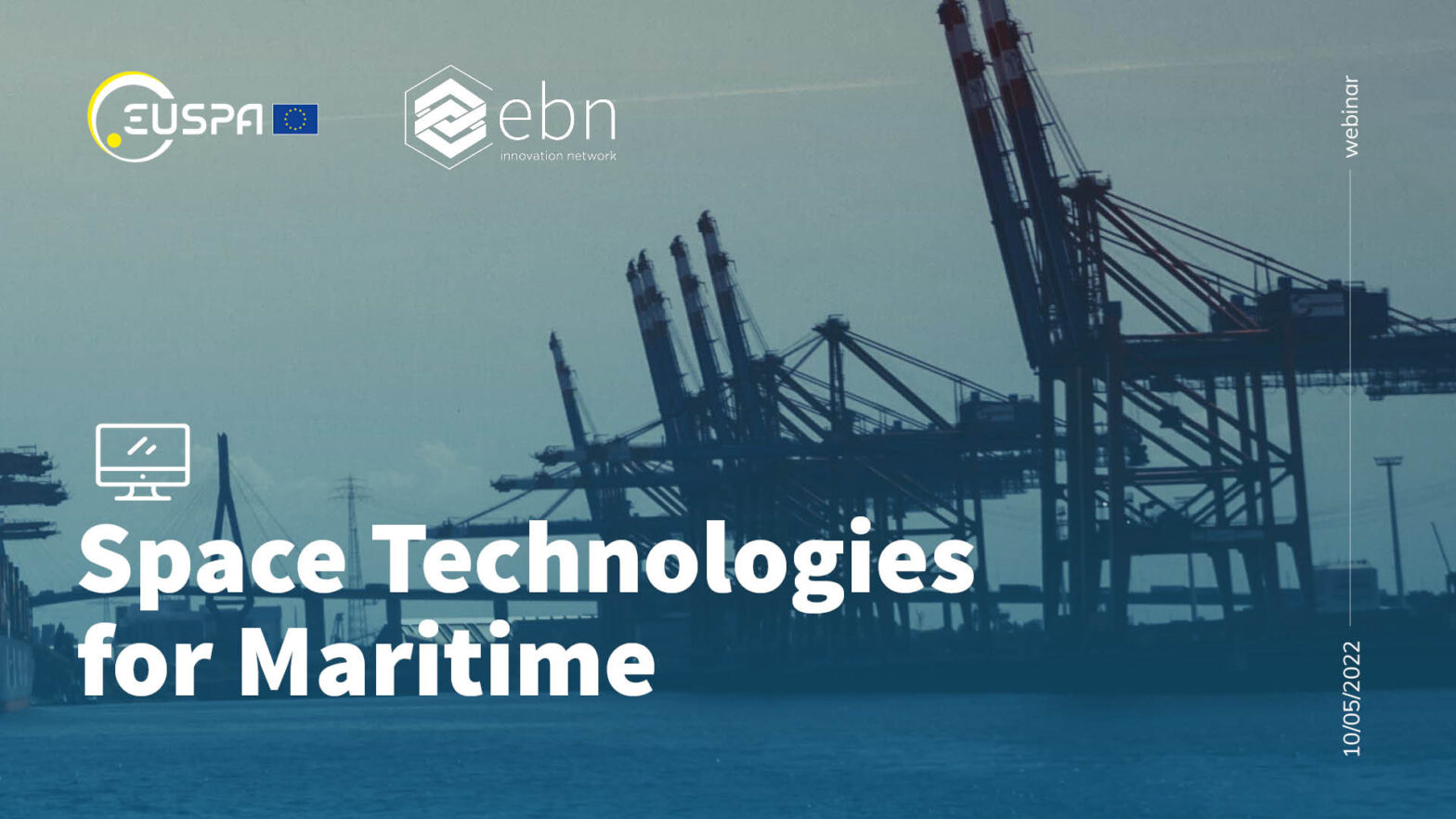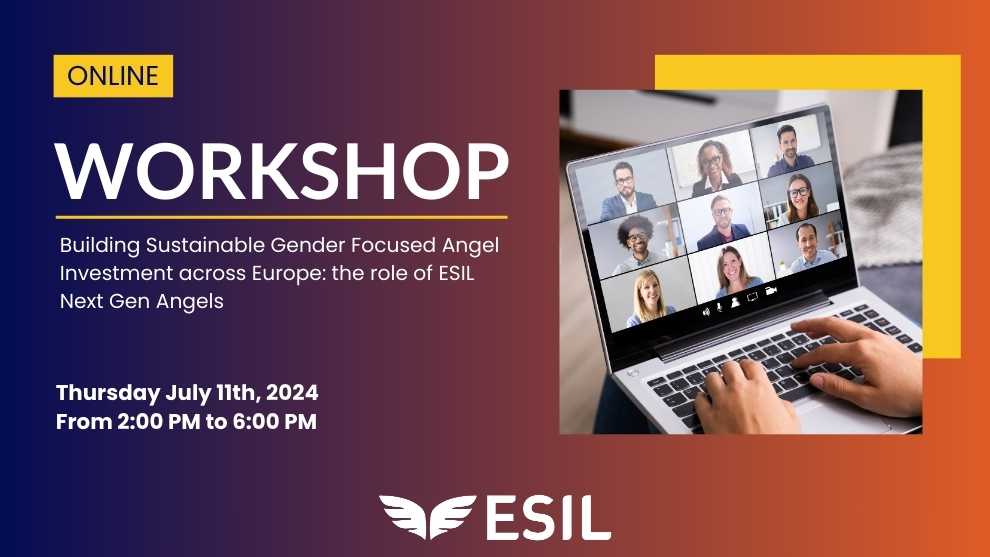EUSPA / EBN webinar: Space Technologies for Maritime

Data from satellites have become an important source of information unlocking new business opportunities and enabling non-existing use cases. EBN together with the European Union Agency for the Space Programme (EUSPA) organises a series of webinars showcasing how space data is enriching industries already today. During the webinars, the EUSPA will introduce the EU Space programmes and activities for entrepreneurs and start-ups, deep dive into how space data can enrich different sectors and examples of existing projects.
The fourth webinar will be focused on Space Technologies for Maritime and the benefits that EU Space Programmes bring to them.
GNSS and EO contribute substantially to the maritime and inland waterways sector, assisting a diverse pool of stakeholders ranging from vessel operators and recreational boaters to port authorities in their day-to-day operations and activities.
Satellite technology has fundamentally changed maritime navigation with the sector being an early adopter of the technology and always quick to embrace new navigational developments.
In 2020, the global size of the GNSS application shipments totalled 1.8m units across all applications used for positioning and navigation for maritime vessels and port operations. Over the last decade, maritime GNSS shipments have witnessed a 6% CAGR, from 1.0m units in 2010. And the total amount of EO data and services for the Maritime sector for 2021 accumulates to €78 million across the six main regions (Europe, non-EU Europe, North America, Asia Pacific, Latin America, Africa & Middle East). Europe represents the second largest market and will become the largest market over the coming decade.
All passenger ships and cargo ships larger than 500 gross tonnages are regulated and rely heavily on GNSS for navigation. What’s more, GNSS systems for maritime navigation are widespread across commercial and recreational vessels, both overseas and in high traffic areas. GNSS is also used to ensure safe navigation in inland waterways (rivers, canals, lakes and estuaries). Moreover, EGNOS maritime applications are already helping to improve navigation, operations, traffic management, seaport operations, inland waterways, offshore exploration and exploitation and fisheries.
Combined with EO, navigation efficiency can be optimised, and further explored in areas previously considered too dangerous or inaccessible such as new maritime routes or shallow inland waters. Besides supporting different synergetic applications with GNSS, EO data itself provides precious insights for ocean services such as ocean monitoring, forecasting and ocean climate records, generating many coastal and marine environment applications.
During the webinar we will present:
- The latest space technologies and the most promising applications
- Added value of Space programmes and how their services can benefit the Maritime and Inland waterways segments
- Insights on innovative solutions that use space-based services to address specific challenges in the Maritime and IWW domains
You can register here
About the experts:
Ms. María Mota is Market Downstream and Innovation contractor at The European Union Agency for the Space Programme (EUSPA). She obtained her MSc degree in telecommunications engineering from the Polytechnic University of Madrid in 2005. For fifteen years she has worked in leading GNSS companies and presents an outstanding experience in the aerospace industry. With a strong technical background, Maria provides sound expertise in the development of GNSS applications for different market segments, thanks to her involvement in the EGNOS Service Provision contract, leading the development of EGNOS Services for maritime and railway domains, and in the Galileo Service Operations contract, fostering the development of Galileo Services for maritime and inland waterways domains.
About EUSPA
The European Union Agency for the Space Programme (EUSPA) provides safe and secure European satellite navigation services, promotes the commercialization of Galileo, EGNOS, and Copernicus data and services and coordinates the EU’s forthcoming governmental satellite communications programme GOVSATCOM. EUSPA is responsible for the security accreditation of all the EU Space Programme components. By fostering the development of an innovative and competitive space sector and engaging with the entire EU Space community, EUSPA contributes to the European Green Deal and digital transition, the safety and security of the Union and its citizens, while reinforcing its autonomy and resilience.






